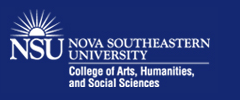Abstract
The contemporary international system is characterized by change and continuity in fundamental socio-political processes and economic relationships that constitute the foundation on which state and non-state interactions unfold. In particular, post-Cold War fin de siècle international politics, rather than producing a new era of global peace, economic prosperity, and symmetrical interdependence, is instead characterized by a widening scope and intensity of geopolitical fluidity and socio-economic effervescence which tend either to (1) undermine state sovereignty, (2) assail human rights practices, or (3) impel the key actors (great powers and major international organizations) of the international system to adopt a foreign policy posture of Aintervention@ with the goal of managing the global political economy. The ever-increasing negative effects of transnational social forces tend to generate the pervasive force of a liberal cosmopolitan moral view of international relations that increasingly sanctions both military and non-military interventions to maintain the existing structure of states and international society. The consequence is that states, in particular weak developing states, are progressively losing their individual identities, rights, and obligations vis-à-vis civil society, in the wake of the external impositions. In other words, the high incidence of violent ethnopolitical conflicts as well as the dislocative effects of weak developing economies are increasingly undermining the twin pillars of non-intervention and state sovereignty. Conflict/peacekeeping interventions and economic dislocation/external policy impositions now constitute the most formidable sources of assault on the decision-making autonomy, territorial integrity, and overall sovereignty of the developing state.
Keywords
conflict, developing state, Gramsci's theory, hegemony, intervention, state sovereignty, world systems
Publication Date
12-1998
DOI
10.46743/1082-7307/1998.1193
Recommended Citation
Conteh-Morgan, Earl
(1998)
"Conflict, Intervention and the Decline of the Developing State,"
Peace and Conflict Studies: Vol. 5:
No.
2, Article 2.
DOI: 10.46743/1082-7307/1998.1193
Available at:
https://nsuworks.nova.edu/pcs/vol5/iss2/2


